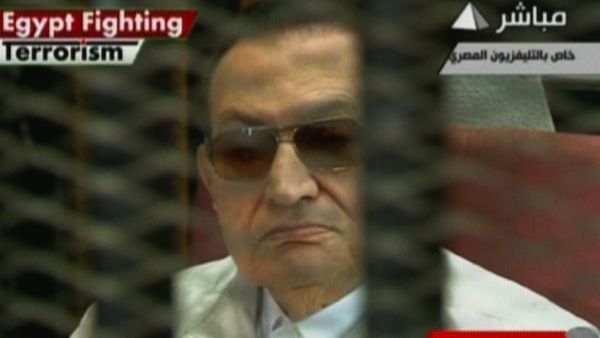The sixth session of the re-trial of former president Hosni Mubarak, his two sons, former interior minister Habib El-Adly and a number of his aides started on Sunday morning at the Police Academy in New Cairo.
The prosecutor-general's office presented new evidence against the defendants to the court.
Mubarak's lawyer Farid El-Deeb demanded that former prime minister Atef Ebeid be called in to testify as an eyewitness on the Egypt-Israel gas deal.
Mubarak faces charges of conspiring with fugitive businessman Hussein Salem to export gas to Israel at below market prices.
El-Deeb also requested that the court postpone the trial about six months to allow enough time for the inspection of all related documents, which he claimed exceeded 55,000 pages.
Former interior minister El-Adly's lawyer requested that heads of security directorates during the 25 January 2011 Revolution be called in for testimony. He also demanded that funds received by certain NGOs be inspected for possible involvement in the clashes that erupted during the 18 days which led to Mubarak's ouster.
All ten defendants attended the session.
Security measures have been tightened around the Police Academy in New Cairo ahead of Sunday's session.
Roads leading to the Police Academy have been blocked by police in preparation for the arrival of Gamal and Alaa Mubarak, and El-Adly – who will transferred in armoured vehicles – and six former high ranking minister of interior aides, state news agency MENA reported, quoting security sources.
Police were also mobilised around the gates of the Police Academy to prevent any possible riots, the sources added.
Mubarak - released from jail on Thursday pending retrial, but ordered to remain under house arrest at a military hospital in the southern Cairo district of Maadi – was transferred to the Police Academy via helicopter as in previous court sessions.
Mubarak's first trial began in August 2011.
The 85-year-old and his interior minister El-Adly received life sentences in June 2012 for being politically responsible for the killing of protesters.
These verdicts were overturned by an appeal court on grounds of procedural improprieties in January 2013.








